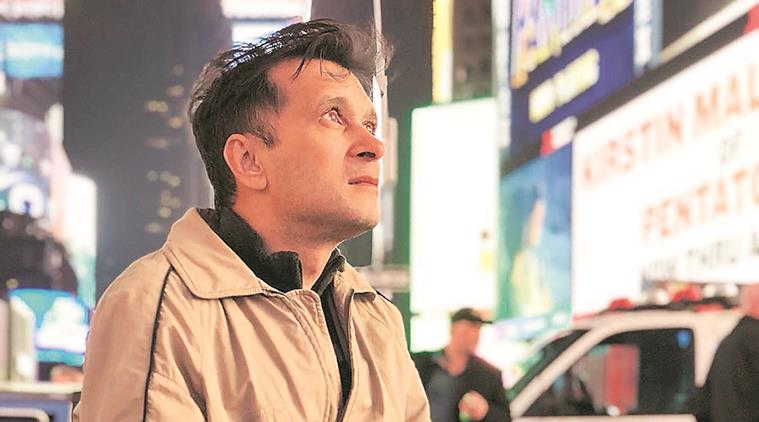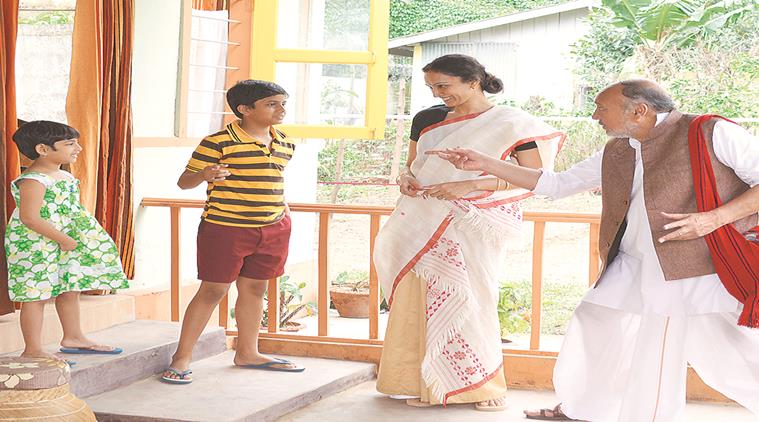 Director Bidyut Kotoky
Director Bidyut Kotoky
Bidyut Kotoky remembers the sight of a terrified father, wearing a vest that had turned red with blood, hiding in the bushes behind their home in Assam’s Salakati with his infant daughter clinging on to him. It has been 35 years since the incident. Yet, the memories of unrest and violence that had gripped the state in the ’80s is still fresh in his mind. “If we fail to learn from our history, we are condemned to repeat it. We, in the Northeast, somehow prefer to turned a blind eye to our scarred past,” says screenwriter-director Kotoky, whose Assamese movie Xhoixobote Dhemalite (Rainbow Fields) is likely to have a theatrical run at Kolkata’s Nandan from June 15.
After his daughter Mou was born in 2013, the question of what kind of a world are people leaving behind for the next generation started haunting the Mumbai-based filmmaker. Through Xhoixobote Dhemalite, his second feature film, he tried to address this question as well as revisit the period of “Assam Agitation”, a movement against illegal immigrants in the early ’80s. “Xhoixobote Dhemalite is a deeply personal film. I didn’t have to do a lot of research to write it. A lot of the incidents that feature in the movie are autobiographical,” says Kotoky, who lived in Assam till 1990 before he joined Pune’s SP College for his graduation in economics. In the movie, the protagonist, a Mumbai-based filmmaker, revisits his past and tries to rectify a previous mistake after learning about the death of his childhood friend who had become an extremist. The movie, which was screened in Mumbai and Delhi, will release in two American theatres in July.
 A still from Xhoixobote Dhemalite
A still from Xhoixobote Dhemalite
Kotoky doesn’t enjoy the process of writing. However, he ends up writing for his directorial ventures so that he can tell the stories that have their roots in his experiences and are related to the Northeast. “Being a self-taught filmmaker, I realised that the only way to bring a producer on board is to tell a story that nobody else can. To tell such stories, I don’t have a choice but to fall back on my experiences of growing up in the northeastern region of our country,” says Kotoky, who made his feature film debut with Ekhon Nedekha Nadir Xipare (As The River Flows)
in 2012.
Since his school days, Kotoky has aspired to make movies. “There was a storyteller in me right from the time when I was a young boy. As my father had a transferable job, we grew up in different parts of the Northeast such as Namrup, Aizawl and Shillong. I used to hate it. Just when we were getting comfortable in a place, it was time to move on leaving my friends behind. Looking back, I realise that those experiences have introduced me to many new emotions,” says the 43-year-old, who has worked on some television shows.
Kotaky has a few scripts ready, all of them are based in the Northeast. He would like to make his next film in Hindi, to be able to reach a wider audience.
Even though viewers today are embracing regional movies, exhibiting them continues to be a challenge. “It’s possible to make a good film with a limited budget. However, it is impossible to have a good release if you don’t have the budget for it or the backing of a big name,” says Kotoky even though he believes that “there is an audience to all kinds of film”.
The Assamese filmmaker has been showing his documentary, Guns & Guitars — A Musical Travelogue, about the positive influence of music created by the musicians of the region, which has been affected by violence for long, in schools and colleges so that the students become familiar with the Northeast. “With the alternative platforms available today, things are changing, but slowly,” he adds.